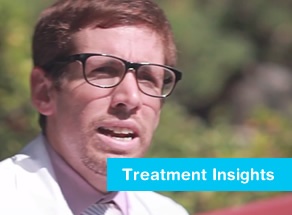Lifestyle
WebMD Covid-19 Updates
04/06/2020 06:00am | 4089 viewsThe poll, conducted online May 18-21, asked 505 K-12 teachers about several concerns regarding the coronavirus pandemic, distance learning, and schools reopening.
Preventive Care
Two groundbreaking drugs could combat COVID-19 and its deadliest symptoms
03/06/2020 06:00am | 3604 viewsBy Maxine Nunes
Two existing drugs, created by a City of Hope scientist using advanced genomic technology, are being tested for their potential to fight the COVID-19 epidemic. One could be used to prevent the novel coronavirus infection, the other to stop the “cytokine storm,” an immune system overreaction that causes most COVID deaths. Both drugs were developed by John J. Rossi, Ph. D., Lidow Family Research Chair of the Department of Molecular and Cellular Biology at City of Hope, and his longtime collaborator Nagy A. Habib, M.D., of Imperial College, London. These drugs are at the forefront of an exciting new class of medications called small activating RNAs, which transmit disease-fighting instructions to a part of the gene called a transcriptome, which then carries them out. “It’s a whole new concept of dealing with viruses,” said Rossi, “an RNA molecule that acts like an antibody.”
Preventive Care
City of Hope to begin CIRM-funded coronavirus study
22/05/2020 06:00am | 3636 viewsBy Samantha Bonar
The California Institute for Regenerative Medicine (CIRM) awarded $750,000 to City of Hope’s John Zaia, M.D., for a clinical study on the use of blood plasma as a potential treatment for COVID-19. CIRM had approved emergency funding for COVID-19 research last month. Zaia, program director of the CIRM-funded City of Hope Alpha Stem Cell Clinic, will conduct the study to administer blood plasma from recovered COVID-19 patients to treat those with the virus.
Finance & Family
Cancer death rate in the US sees largest one-year drop ever, report says
24/01/2020 06:00am | 4666 viewsResearchers on Wednesday reported the largest-ever one-year decline in the U.S. cancer death rate, a drop they credited to advances in lung tumor treatments.
Mental Health
Five Ways to Improve Your Mental Health in 2020
20/01/2020 06:00am | 5316 viewsIt's a difficult birth for this new decade. The year 2020 kicks off under the shadow of divisive politics, international security threats, a spate of hate crimes, and a planet in environmental peril, plus all the reasons we're stressed individually: work, health problems, life changes and more.





